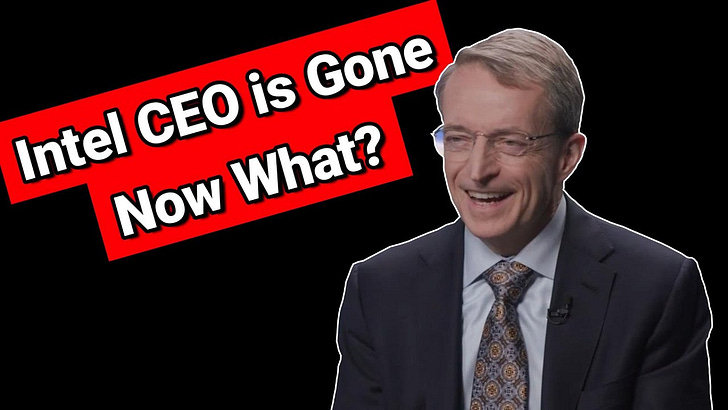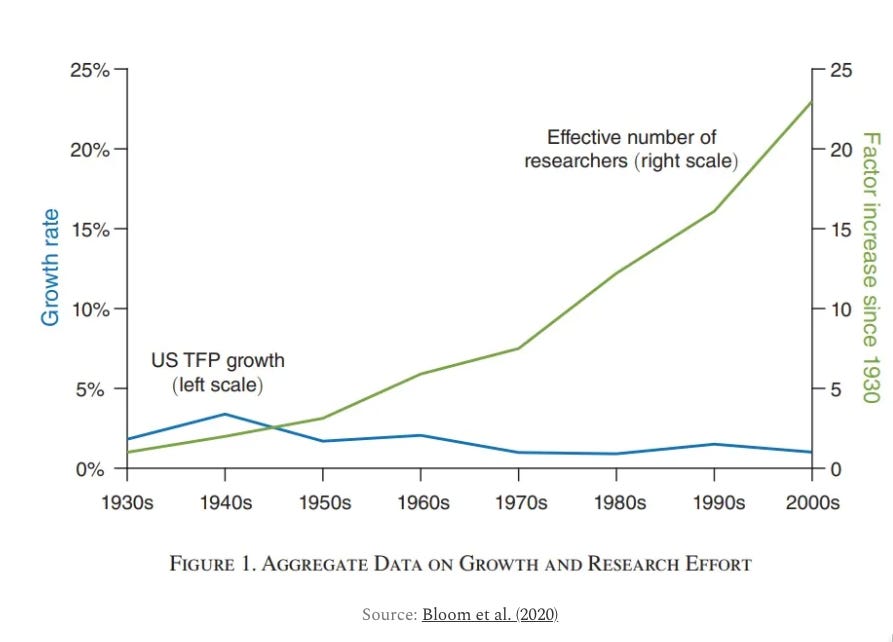My weekly read-around...
When historians look back, will the key events of this week be the raising of the curtain on the latest season of the Trump Chaos-Monkey Clown Show of performative cruelty and incompetent chaos? Or will it be the likely collapse of Intel, a technology-forcer and production-network enterprise that is all by itself 0.7% of America’s economy?…
ONE AUDIO: Verge Honcho Nilay Patel & BlueSky CEO Jay Graber:
The federated Twitter competitor is heating up this week as people flee X — it just crossed 15m users and is currently the top app in the US iOS App Store. CEO Jay Graber was on Decoder earlier this year, talking about Bluesky’s approach to federation, “composable moderation,” and ultimately monetization. It’s a good one!
<https://overcast.fm/+AAQLdvlXdsU>
ONE VIDEO: Ian Cuttress on the Pat Gelsinger Resignation:
ONE IMAGE: The Red Queen’s Race of Discovery, Innovation, & Deployment:
ANOTHER IMAGE: Roman Coin Finds:
Very Briefly Noted:
Public Reason: I, too, want a political party that talks to me—that asks for my input at the block, neighborhood, city, regional, state, and national level with at least occasional high touch contact rather than a blizzard of fundraising text messages every election season. But that is a level of engagement that only billionaires can get these days. The question is why such party-strengthening efforts never have sufficient legs:
Jonathan Bernstein: Parties, Presidential Power, and (Potential) US Collapse: ‘I have nothing at all against building up traditional-style formal party organizations into thicker (as it were), less “hollow” entities…. [But does] the current “blob”-like party… really fail to connect people properly given what parties have to work with in the 21st century… And I’m always a bit suspicious about outsider-designed reforms…. That said, however, this particular form of party strengthening sounds like something worth trying…. I have more to read, and I’m sure I’ll return to this topic again. But this a good item to click through to get started… <https://goodpoliticsbadpolitics.substack.com/p/parties-presidential-power-and-potential>Public Reason: The essay that Bernstein is reacting to. I tend to think Farrell is pissing into the wind here for reasons he explicitly admits: “the withering of parties is just one aspect of a more general withering of organizational life… civic activities… no longer much involve ordinary people…”:
Henry Farrell: Not popularism. Not deliverism. Partyism: ‘Perhaps Democrats should consider becoming a political party?… What if the Democratic party’s problem is… that it… is too disconnected from the lives of the people…. Tthe answer… is to… work with ordinary members and voters to actually build up a party that makes connections between politicians and the people between elections…. The withering of parties is just one aspect of a more general withering of organizational life (most eloquently documented by Theda Skocpol), in which a whole host of civic activities have been professionalized, so that they no longer much involve ordinary people… <https://www.programmablemutter.com/p/not-popularism-not-deliverism-partyism>MAMLMs: This gets it on the nose: LLMs are not, fundamentally, software businesses: they are, rather, businesses that burn electricity and processing power in hyperscaled regression and classification, and so are remarkably close to constant returns to scale commodity production. That ain’t where the riches of the Cave of Wonders are to be found—but they may have tgruly incredible use-values for society. Or maybe not:
Cal Peterson: Building LLMs is probably not going be a brilliant business: ‘LLM makers… have only one true supplier: NVIDIA… [with] colossal, near total pricing power…. Companies that build AI into their businesses are starting to do so via abstraction layers that allow them to switch model easily. That makes LLMs interchangeable…. LLM makers look a lot more like Netscape—who invented graphical web browsers, then went bust—than Google…. If LLM makers seem cursed to an airline-style business destiny, how come they are able to raise so much money?… What do they know that I don't?… The problem is that not all technology companies are “software companies”. If you have a hugely powerful single supplier like NVIDIA then the economics of your company are going to look less like Microsoft Office and more like Pan-Am… <https://calpaterson.com/porter.html>Tech: What is the real status of Intel 18A, anyway?:
Anton Shilov: Broadcom reportedly disappointed with Intel 18A process technology — spokesperson confirms evaluation is still in process: ‘Intel’s ambitions to become the world’s second-largest contract chipmaker by 2030 seem to have encountered a major hurdle after Broadcom’s trial runs using Intel’s 18A fabrication technology did not purportedly meet expectations…. Engineers and executives were allegedly unsatisfied with the production node, claiming it was ‘not yet viable to move to high-volume production,’ according to Reuters' sources…. But Intel disclosed defect density for its 18A process last week, and it looks healthy enough for a node that will enter mass production two or three quarters down the road. “I am happy to update the audience that that we are now, for this production process, we are now below 0.4 d0 defect density, this is now a healthy process,” said Pat Gelsinger, chief executive of Intel, at the Deutsche Bank’s 2024 Technology Conference…. Generally, it is considered that a defect density below 0.5 defects per square centimeter is a good result… <https://www.tomshardware.com/tech-industry/broadcom-disappointed-with-intel-18a-process-technology-says-its-not-currently-viable-for-high-volume-production>Neofascism: The Clown Show begins another season!
Dan Drezner: The First Trump 2.0 Coercion Cycle: ‘Here we go again.... Sheinbaum explained Mexico’s existing policies to Trump, and he took them as concessions…. The country least moved by Trump’s threats was, unsurprisingly, China…. China has plenty of flashy but token concessions they can dangle in front of Trump to see if he grabs them…. Trump will threaten economic coercion a lot. He will also claim premature victories a lot. Will he follow through…. The Financial Times’ Alan Beattie offers the most cogent answer to that question…. “The main conclusion from this week is that, as in Hollywood, nobody knows anything…” The biggest cognitive error Trump made in his first term was assuming that the recipe for successful coercion could be applied everywhere. He is very, very, very likely to make the same mistake this time around… <https://danieldrezner.substack.com/p/the-first-trump-20-coercion-cycle>
SubStack NOTES:
SubStack Posts:
If reading this gets you Value Above Replacement, then become a free subscriber to this newsletter. And forward it! And if your VAR from this newsletter is in the three digits or more each year, please become a paid subscriber! I am trying to make you readers—and myself—smarter. Please tell me if I succeed, or how I fail…












Nice map. I thought India would be strongly biased toward the west coast.
"I, too, want a political party that talks to me—that asks for my input at the block, neighborhood, city, regional, state, and national level with at least occasional high touch contact"
Housing policy has made me exceptionally skeptical of going too far in this direction. When things are too local, you end up empowering NIMBYs. You really don't want to further empower "retired people with enough time to show up to all the meetings."